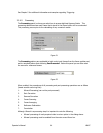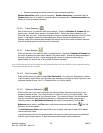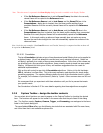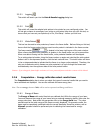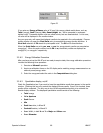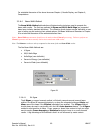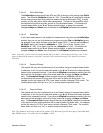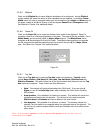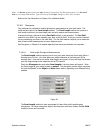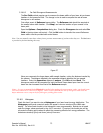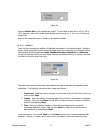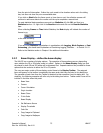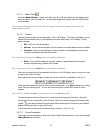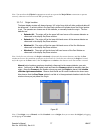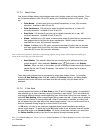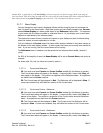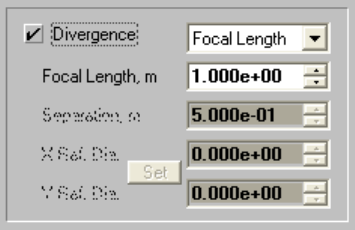
Hints: Use Drawn apertures and avoid Auto apertures when making Top Hat measurements. Use Percent of
Peak as your beam width method. Typical Percent of Peak Clip% settings are 50%, 80%, and 90%.
Refer to the Top Hat section in Chapter 6 for additional details.
3.2.6.8 Divergence
Two methods are provided for making divergence measurements of your laser beam. The
preferred technique is the Focal Length method. The Focal Length method can produce a
valid result anywhere in the laser beam path and only requires one measurement.
A second technique, referred to as the Far-Field method, is also provided. The Far-Field
method is only valid if you are sampling your laser in the far field. It will give incorrect results if
you are measuring your laser in the near-field. The Far-Field method requires you to make two
sets of beam width measurements a known distance apart.
See Divergence in Chapter 6 for details regarding how these two methods are computed.
3.2.6.8.1 Focal Length Divergence Measurements
The Focal Length method requires you to bring your laser beam to a focus using either a
focusing lens or mirror. You must place your camera detector at the focal point of the
focusing optic. One-half to one-meter focal lengths are typical, as they will keep the focused
spot size large enough to be measured with a CCD camera.
Check the Divergence box and select Focal Length in the drop down edit control. Enter
the Focal Length of your optical system in meters. The divergence results will be computed
for both the X and Y or the Major and Minor beam widths, depending upon Elliptical being
enabled.
Figure 26
The Focal Length method is most appropriate for lasers that exhibit small angular
divergences. For larger divergence angles, like those seen with laser diodes, the Far-Field
method is much more accurate.
Operator’s Manual LBA-PC
72



